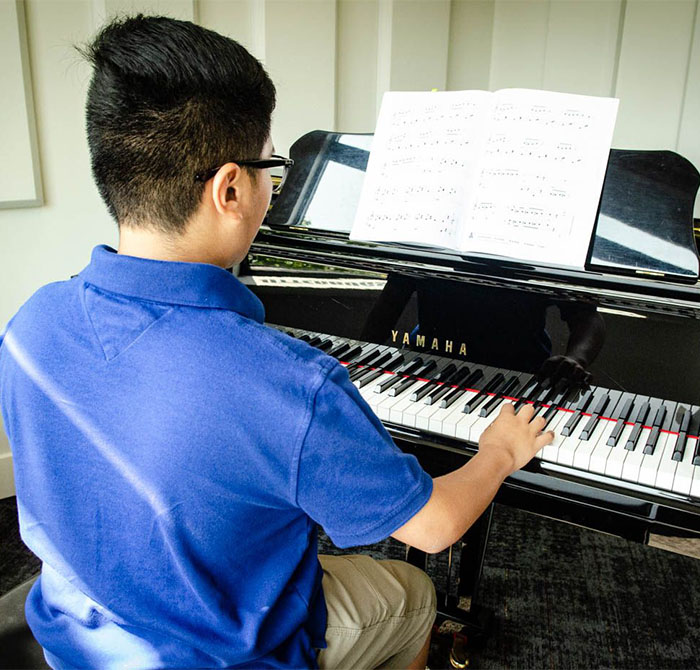How to Prepare for a Piano Exam
As Head of the Piano Department at MSI Langley, Annette Droz has prepared many students for piano exams through her piano lessons and has been through the experience herself! Here are her top tips to succeed on your next piano exam.
1. Memorize your pieces, with “pick up” points.
Having your pieces memorized means that you fully and confidently know your pieces when you head into the exam. It also allows you to focus on the musicality of the songs without worrying about the notes and rhythms on the page. Having a few “pick up” points throughout the piece in event of a mistake will help you remember the following section, and keep you playing through without getting stuck.
2. Practice without “false starts”.
Start practicing without “false starts”. This means that once you start your technique or songs/pieces, you keep playing no matter what! In practice sessions, we’ve trained ourselves to stop and fix mistakes. But in performance and exam situations, you need to practice starting and continuing on to the very end. Do this with every exam requirement: technique, sight-reading, and pieces.
3. Practice performing!
Play through your complete song collection for family and friends a couple of weeks or days BEFORE the exam. Performance practice helps ease the feeling of stage fright. You can even play your songs for someone over FaceTime, Skype or over the phone!
4. Take a mock exam beforehand.
Have your instructor give you a mock exam in your piano lessons several weeks before the real date. This will help you know what it will feel like to run through the full exam, and also helps you mentally prepare for how to deal with the silence or little talking that often happens within the exam room.
5. Don’t forget to breathe!
Did you know that by holding your breath, you can actually shorten muscles, thus creating tension, and making mistakes? A great way of slowing down your heart rate is to breathe in and then slowly exhale over 10 seconds. Do this before you start your exam and before you play your pieces for the examiner, and even practice doing this in your piano lessons. This will slow your heart rate down to normal, help reduce nerves, and help you start your song at a comfortable tempo.
6. Have fun 🙂
Remember why you’re doing this – you love music, and the examiner loves music too! You’ve practiced hard, so enjoy the moment and don’t worry about the grade. Focus on sharing and showing off your skill!
Interested in private piano lessons? Click here for more details.
